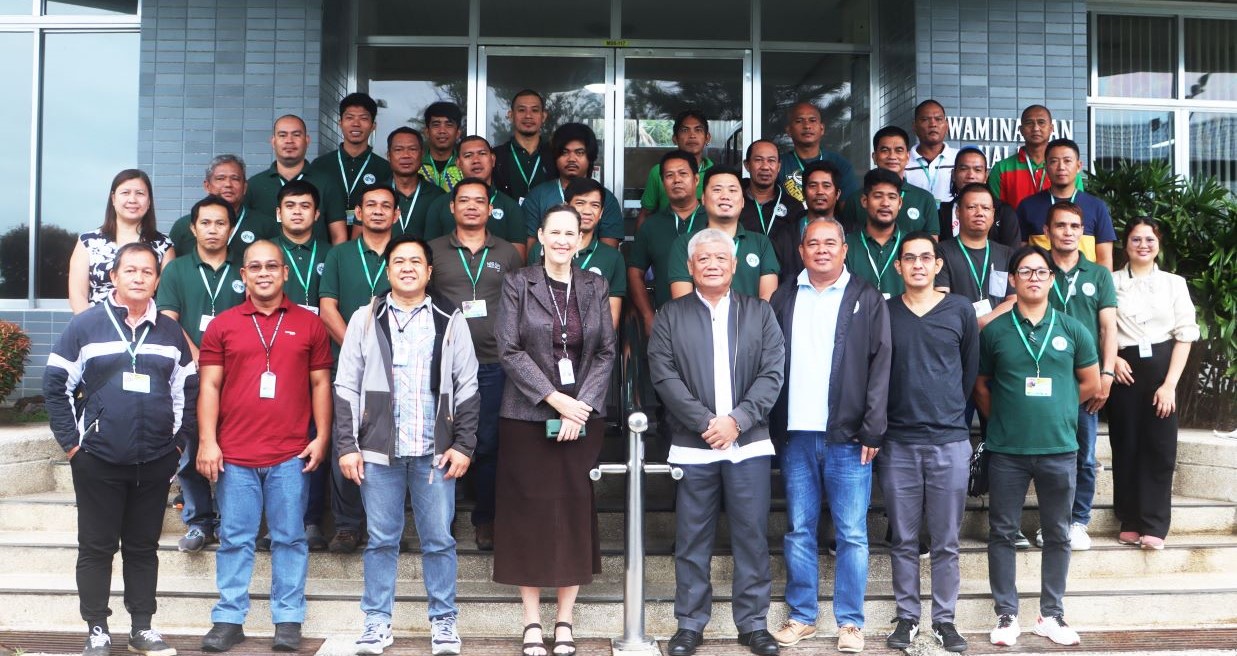The International Rice Research Institute (IRRI) and the College of Agriculture and Food Science of the University of the Philippines Los Baños (UPLB) organized a 2-day training on the fundamentals of rice-farm management and operations and farm machinery maintenance.
From November 16 to 17, 30 technicians, farm workers, and heavy equipment operators from UPLB were at the IRRI headquarters to learn the basic knowledge and skills required in planning and operating a rice farm and maintaining rice farm machinery and equipment. The training will also highlight safe practice in operating agricultural machinery for rice production.
During the opening program, Gopesh Tewari, Head of IRRI Education, welcomed the participants. He talked about the role of machineries and mechanization in agriculture and how, moving forward, this would still play a part for agriculture 4.0. Ending his message, he urged the participants to interact and participate in dialogues with different IRRI scientists and resource persons of the program to enhance their knowledge and skills that they can bring back to UPLB.
Meanwhile, Joanna Kane-Potaka, IRRI’s Deputy Director General for Strategic Engagement and Impact, talked about the core mission of IRRI and the imperatives that goes along with it, focusing on climate change adaptation and mitigation and nutrition and food security. She also shared about the ongoing collaboration between IRRI and UPLB and how the current training is a testament of these efforts. Ending her message, she posed a challenge to the participants, “as you go through this course, look for opportunities how what you’re doing and what IRRI is doing, how we may be able to work together more. If you can identify anything we’re really keen to collaborate more and look for opportunities there.”
The dean of UPLB’s College of Agriculture and Food Science, Elpidio M. Agbisit, Jr., was also present during the program where he emphasized the importance of the training for the participants whom he considers as the backbone of their college. “This is the opportunity for you to acquaint yourself with the future of agriculture and we have to adjust so that we can [still] be relevant. I hope that everybody will listen, learn, and apply the knowledge that you will gain from this [training]”.
In the span of two days, the participants attended lectures on land preparation, crop establishment, water management and pest management, rice harvesting and post-harvest operations, and power sources in the farm. Aside from these, they also had hands-on training on farm machine maintenance and safety protocols for operating rice farm equipment. Moreover, they visited key IRRI facilities such as the Zeigler Experiment Station, where they observed the operations of post-harvest machineries; the IRRI Plant Growth Facility; and the IRRI Genebank.


